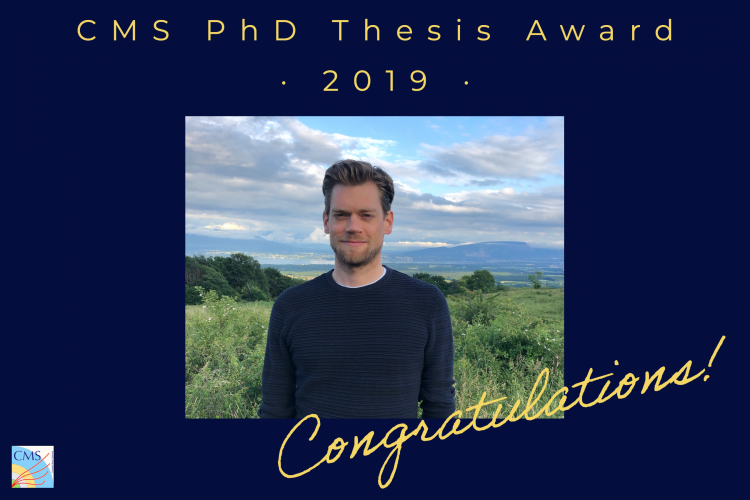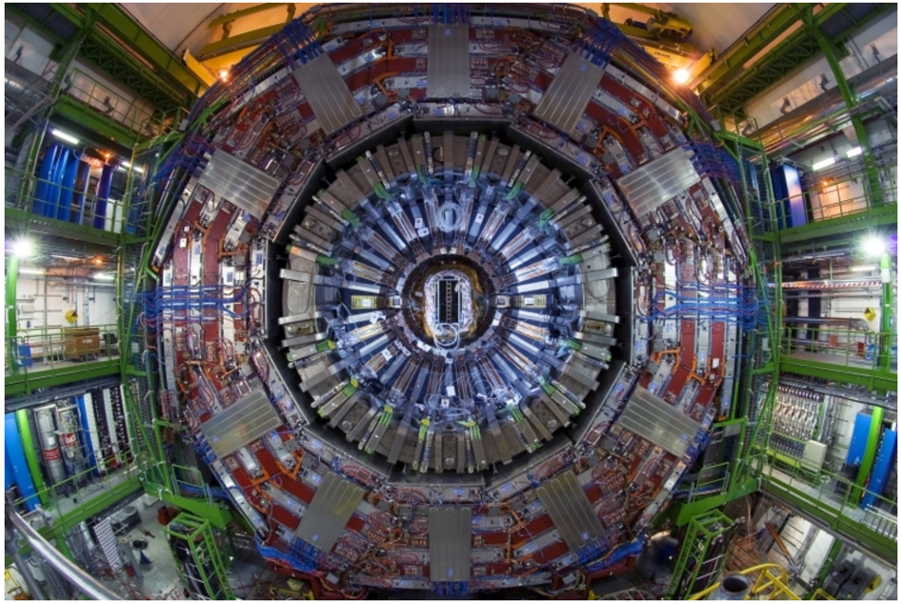
June is the month of the PhD Thesis Award at CMS, the prize that aims to recognise the best PhD Thesis of the year based on impact, original contribution and clarity.
25 CMS theses were nominated to compete for the CMS PhD Thesis Award for 2019.
Once again the high level of the presented theses made the work of the CMS Thesis Award Committee very hard. And once again, all nominees made the CMS collaboration proud of its scientists.
After a tough two-stage selection process one thesis has been selected as the best one. We present to you the winner of the CMS PhD Thesis Award 2019, Marcel Rieger.
Marcel Rieger, RWTH Aachen University

My name is Marcel Rieger and I am an experimental particle physicist from Germany.
Fascinated by the questions of how laws of nature can be unraveled and what matter is made of, I knew early on that I wanted to pursue a career in the fundamental sciences.
I joined the CMS collaboration as a student in 2012 and completed my PhD at RWTH Aachen University last year.
Since then, I continued working with the CMS experiment as a research fellow at CERN.
For my PhD, I studied how the Higgs mechanism gives mass to quarks, the fundamental building blocks that make up the matter we observe around us.
In particular I searched for a process where a Higgs boson is created in high energetic particle collisions at the LHC in combination with two top quarks - the heaviest known elementary particles.
This process, known as "ttH production", was never observed before as it is extremely rare.
It occurs in only one out of 100 billion proton-proton collisions in the center of the CMS detector; this is comparable to finding a single grain in 20 tons of sand.
In order to pick potential ttH event candidates out of a vast amount of similar looking but already known "background" events, I employed techniques from the field of deep learning and neural networks.
I developed a novel method for identifying events using a so-called "multiclass classification" approach, which proved to be very effective and led to a significant increase in analysis sensitivity.
In combination with other searches in different decay channels, my work contributed to the first observations of ttH production and beyond that was used in the observation of Higgs boson decays into pairs of bottom quarks.
These findings mark important steps towards understanding the origin of mass of matter particles as well as the forces that act between them.
Undoubtedly, doing a PhD requires hard work, diligence, devotion and persistence.
But beyond that, it is a unique opportunity to contribute to fundamental research which, in my experience, was a rewarding and memorable time I look back on with joy.
Also, I am grateful for the excellent mentoring I experienced during my PhD.
CERN, CMS and the values they embody are a blueprint for peaceful and fruitful collaboration between people irrespective of ethnic origin, religion, skin color and nationality, and I enjoy working in this community to this day.
- Log in to post comments

